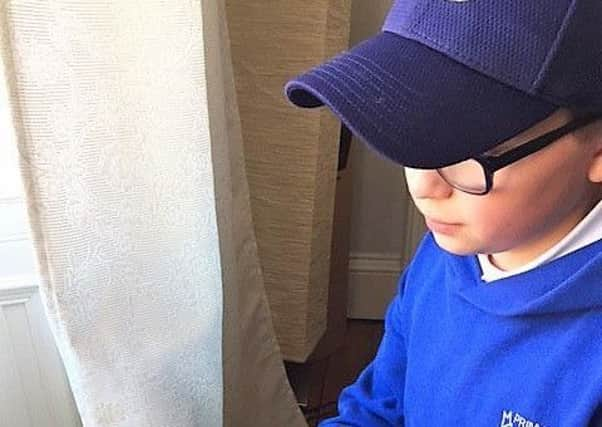Mark O’Donnell: Our vision is for pupils with sight difficulties to succeed in school


That is daily life at school for pupils with vision impairment. So specialist support for pupils who are blind or partially sighted is vital if they are to have a level playing field in education.
Recent figures from the Scottish Government show that we now have record numbers of pupils in Scotland with vision impairment. The Pupil Census shows that there were 4,574 pupils with vision impairment in 2018, more than twice the number of 2010.
Advertisement
Hide AdAdvertisement
Hide AdWe need to understand better what lies behind these figures, but the trend is clear – more pupils means we need to provide more specialist support.
In reality, pressures on local authority budgets mean support is actually being scaled back, and at the very time we have seen increasing numbers of blind and partially sighted children the number of specialist teachers has actually fallen.
At Royal Blind, we are making the case that action needs to be taken to ensure all pupils with vision impairment can access the specialist teaching they need, whether that be through support in mainstream schools or a placement at a special educational needs school like the Royal Blind School.
However, we also recognise that in a challenging financial environment we need to look at how we can innovate to improve support as well as ensure value for money.
This is work we have been taking forward, and at its core is building successful partnerships with schools, councils, and teaching staff across the country.
We have established a Learning Hub at the Royal Blind School which provides teacher training, educational resources, advice and workshops to teachers and other education professionals working with blind and partially sighted pupils. We offer support through one-to-one contact, teacher training seminars, and online learning, and our support aims to complement services provided by local authorities.
Sometimes debate around additional support for learning can focus on whether pupils should be in a mainstream or a specialist school, when the reality for a number of pupils is they can benefit from both learning environments.
This is known as “flexible provision”, where pupils spend part of their school week in a mainstream school and part in a specialist school. We have pupils at the Royal Blind School who benefit from this kind of support, being included in mainstream education but also receiving additional input from the Royal Blind School part-time.
Advertisement
Hide AdAdvertisement
Hide AdIn 2017, we also established a groundbreaking partnership with East Lothian Council which we believe could provide a blueprint for the future of vision impairment education. Through this collaboration we are working with the local authority to deliver the vision impairment service in their schools, as well as with NHS Lothian and third sector organisations to identify and support children and young people with vision impairment. The partnership has been a great success and welcomed by pupils and parents. One pupil who has spoken of how he has benefited is Chris Dowdeswell, who attends Campie Primary School in Musselburgh.
Chris’s mum Heather told us: “The difference in Chris in just a year has been amazing. He has two very dedicated, knowledgeable and very professional members of Royal Blind School staff providing support to him through the partnership.
“It was recognised that there was a need for Chris to learn braille before starting high school, and we knew that time was a factor so everything was in place very quickly and he was up and running in no time.”
Chris said: “Before they came, I wasn’t too confident in doing work, but now I am. If I was to go into high school after primary five, I don’t think I would be too excited or very confident. But now (moving to high school next year) I’m looking forward to it and I’m confident.”
Chris’ experience shows that through successful collaboration we can help pupils with vision impairment, wherever they are taught, to succeed at school.
Mark O’Donnell, chief executive, Royal Blind and Scottish War Blinded.